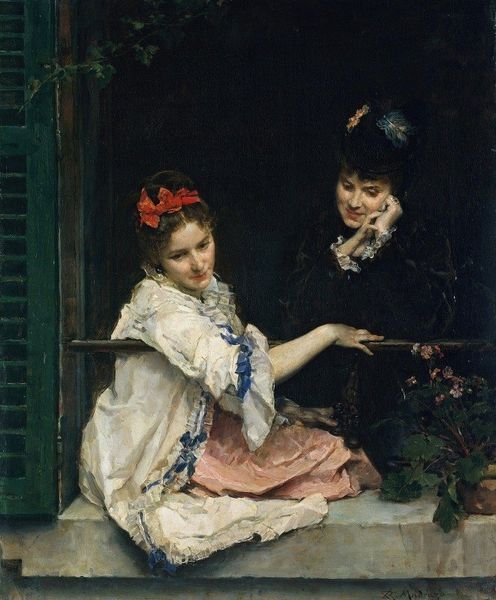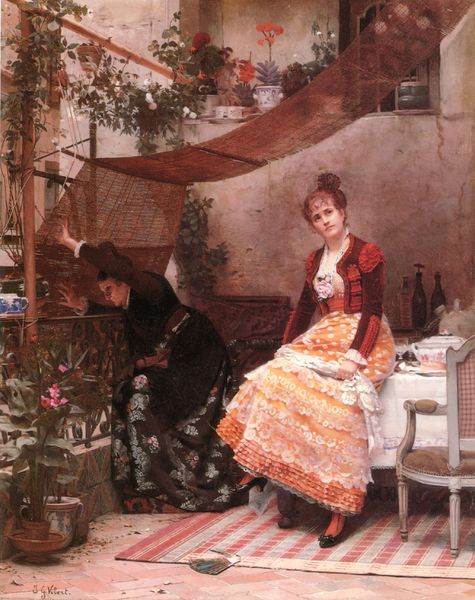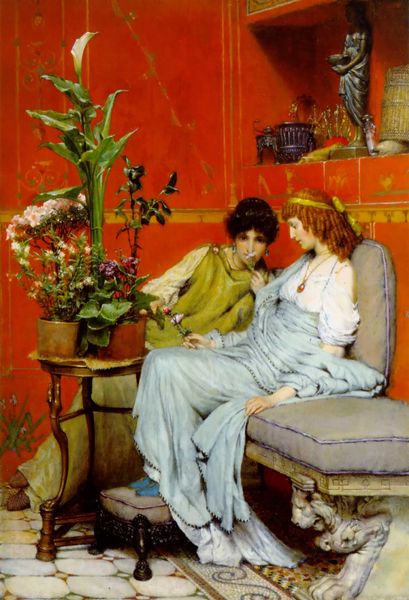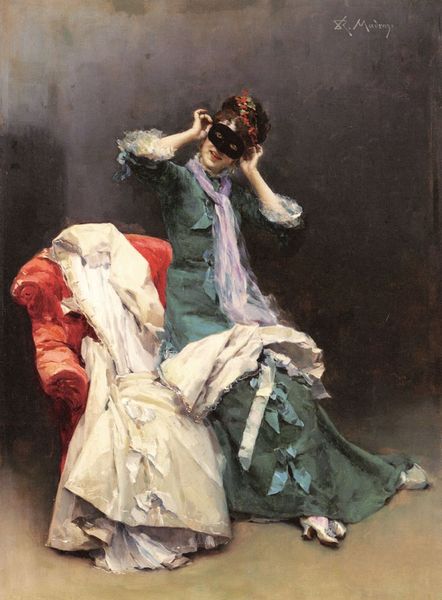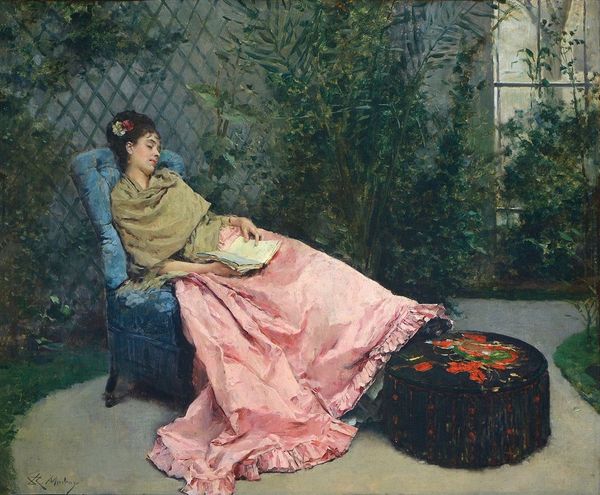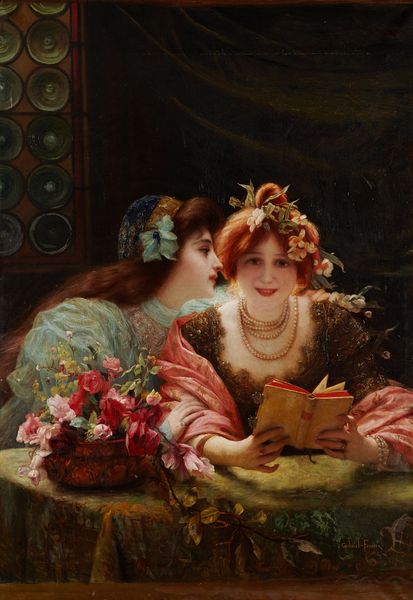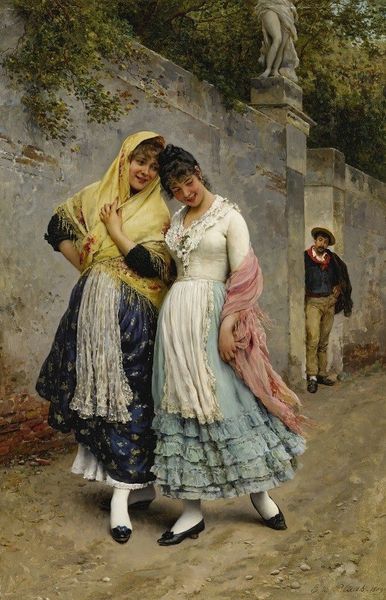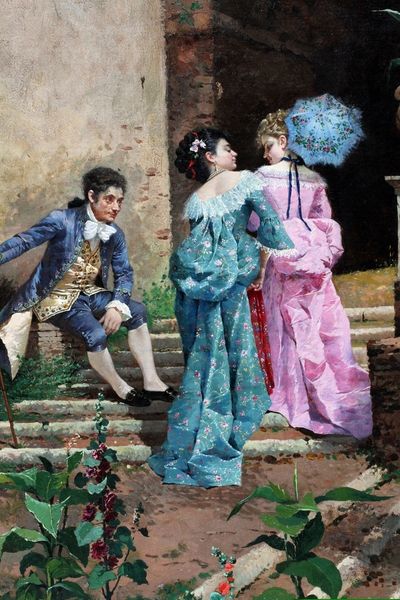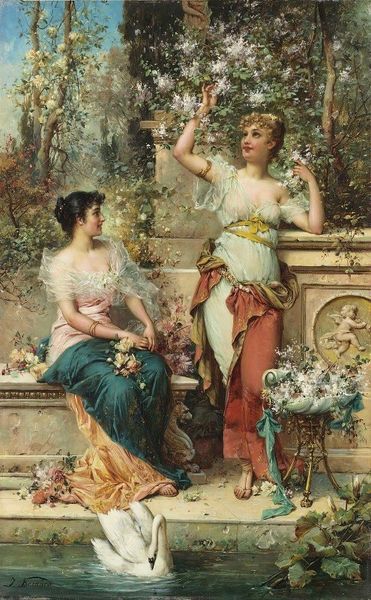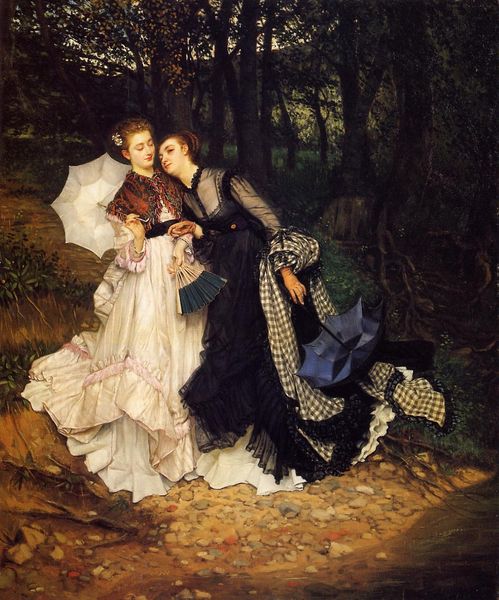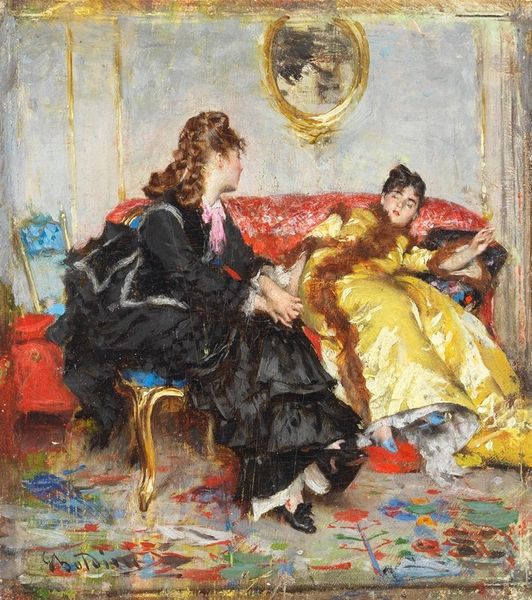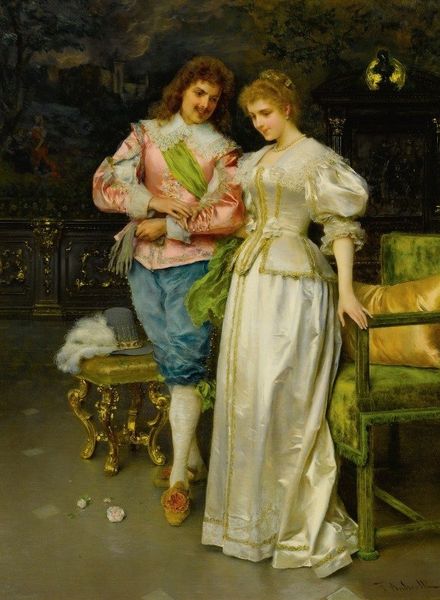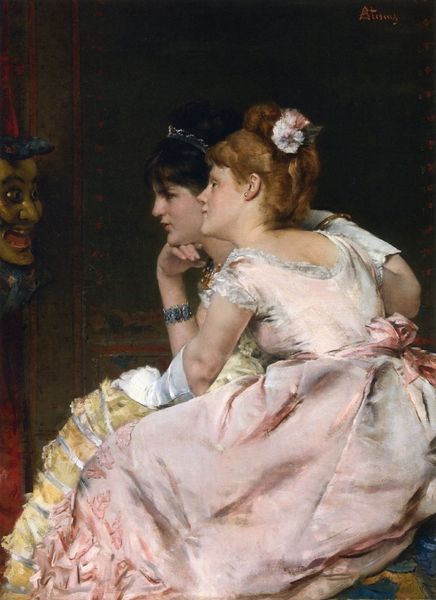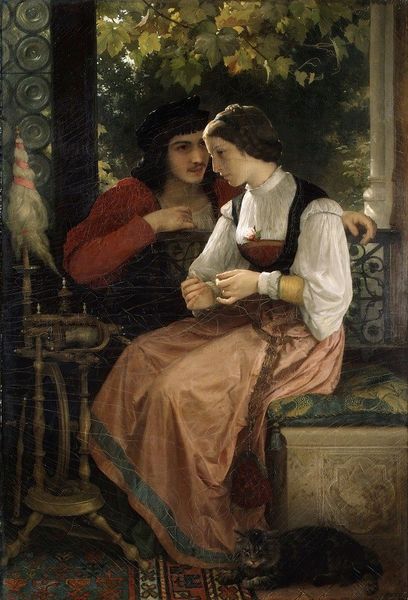
painting, oil-paint, impasto
#
portrait
#
gouache
#
figurative
#
painting
#
oil-paint
#
figuration
#
impasto
#
intimism
#
romanticism
#
genre-painting
#
academic-art
#
mixed media
Copyright: Public Domain: Artvee
Editor: Raimundo de Madrazo’s painting, "The Letter", is simply captivating. It appears to be done in oil with possible mixed media or gouache, showing two fashionable women engrossed in reading a letter in what seems to be a garden. The scene has such an intimate feel. I am curious about the setting. What does it tell us? Curator: That's an astute observation. The setting, a lush garden, positions these women within a specific social and cultural context, one steeped in leisure and privilege. This piece invites questions about the evolving role of women in the 19th century, their access to education, and how intimate communication took place. The painting operates within the confines of a domestic sphere but also alludes to a broader social network. Editor: The composition has an "academic" and "romanticism" mood. How does it speak to Romantic ideals when it feels so contained and posed? Curator: "Romanticism" doesn't always manifest as dramatic landscapes or heroic figures. Intimist works can also carry that sensibility. The sentimentality tied to personal relationships and experiences as portrayed here speaks to the Romantic fascination with emotion and the individual's inner life. Also, note how this ideal reflects the values of the bourgeoisie class as promoters of cultural consumption and behavior norms. Don't you think? Editor: That makes a lot of sense. So it's less about grand gestures and more about the emotional nuance in everyday life. How did such paintings play a role in shaping social expectations or aspirations? Curator: Precisely. These kinds of images offered viewers a glimpse into the desired behaviors, values, and even anxieties of the middle and upper classes. Artists like Madrazo played a vital role in visualizing and therefore solidifying class expectations in his painting by including the umbrella and the fan. Editor: I see it in a new light. Thanks for pointing out the social aspect and its effects on cultural beliefs of those days! Curator: My pleasure. Always try to go behind the aesthetic appeal of any work of art to examine the context.
Comments
No comments
Be the first to comment and join the conversation on the ultimate creative platform.
